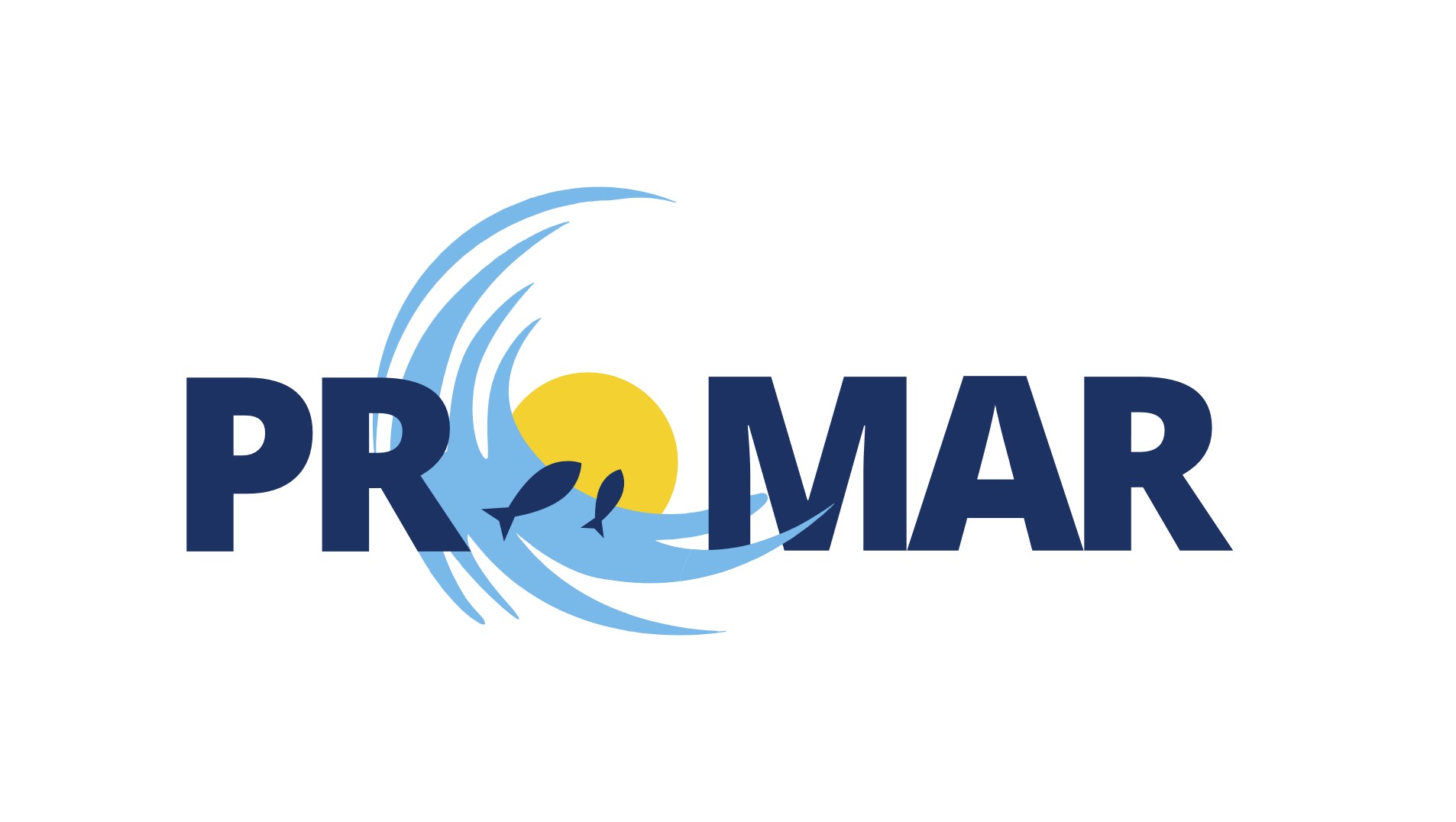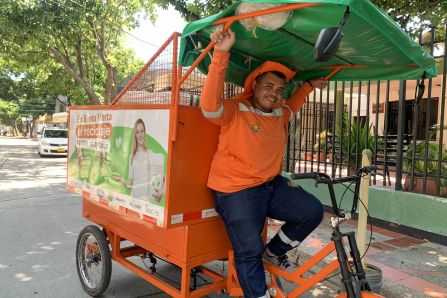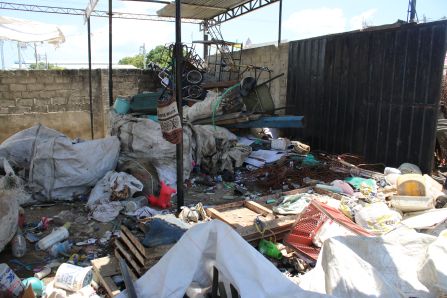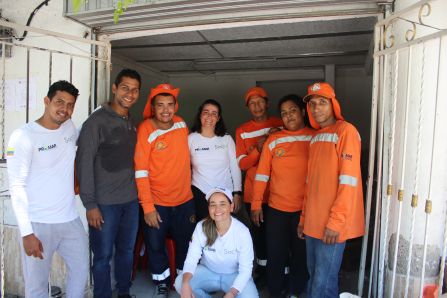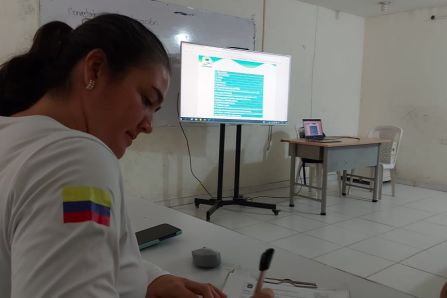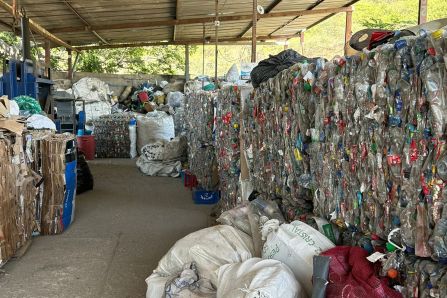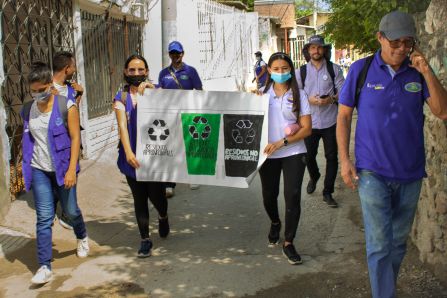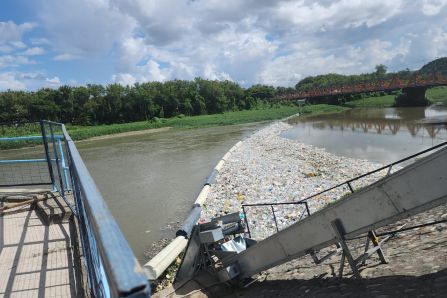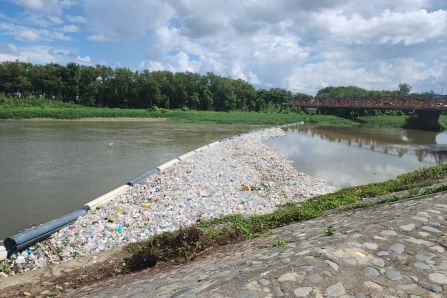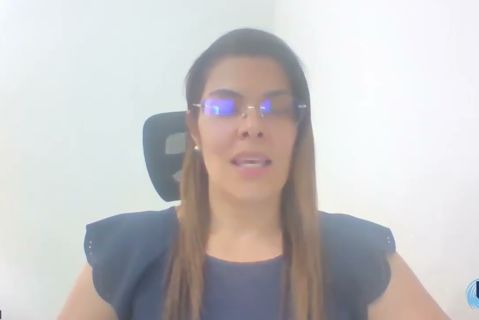El piloto de economía circular de Santa Marta (Colombia) aplica diversas estrategias de gestión para reducir los flujos de materiales que llegan al mar Caribe, mejorando los servicios de gestión de residuos y mejorando la calidad de vida de los recicladores y sus familias que participan en el proyecto. Las rutas de recogida del proyecto piloto cubren 24.008 hogares, almacenes de cadena, instituciones educativas y tiendas de barrio, operados por tres organizaciones de reciclaje. Estas organizaciones permanecen activas en el piloto, centrándose en la transferencia de conocimientos después de que una organización concluyera su participación. A través de seis pilares de desarrollo, incluida la modulación financiera y la integración de las partes interesadas, el proyecto promueve la sostenibilidad y el bienestar social. Las campañas de concienciación sobre residuos marinos y reciclaje llegaron a más de 46.000 personas. En diciembre de 2023, se habrán recogido y transformado más de 3.000 toneladas de materiales, y la colaboración con el plan de envases colectivos Repack permitirá a los recicladores acceder a oportunidades de ingresos adicionales en el marco de la Responsabilidad Ampliada del Productor (RAP), lo que contribuirá a la estabilidad financiera y la calidad del servicio.
Parley for the Oceans y Cilpen Global, con el apoyo de PROMAR, han puesto en marcha una solución estratégica en la lucha contra la contaminación de los océanos. Se ha instalado una barrera fluvial (barrera flotante) en el río Yaque del Norte, en Santiago (República Dominicana). Los objetivos de este proyecto de colaboración son los siguientes: impedir que los residuos sólidos, principalmente plásticos, lleguen a los mares, salvaguardando así los ecosistemas marinos, sensibilizar a la comunidad y a sectores de la sociedad sobre los desechos marinos mediante actividades educativas en el lugar, y recopilar datos cruciales sobre el volumen de desechos que fluyen por el río. Tras ser capturados en el río, los materiales se elevan mediante una cinta transportadora, alimentada por paneles solares, y se recogen en un contenedor móvil. A continuación, Cilpen Global transporta el material a sus instalaciones para clasificar las fracciones reciclables y procesarlas. Además, la iniciativa cuenta con un espacio educativo (contenedor) que acoge a grupos de estudiantes o de la comunidad para actividades educativas y de sensibilización.
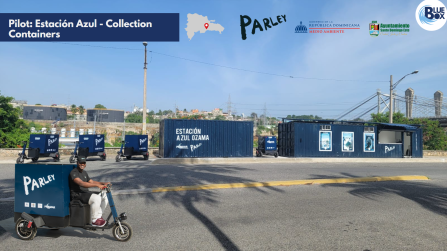
Este proyecto piloto pretende fomentar una cultura de reciclaje y concienciación medioambiental en la comunidad, respondiendo a los retos de la gestión de residuos y al aumento de los plásticos de un solo uso. A través de asociaciones estratégicas con instituciones como el Colegio Babeque, el Centro Cultural de España y la Plaza Educativa Don Bosco, se han establecido los primeros Puntos Azules (contenedores de reciclaje) en lugares clave del Gran Santo Domingo.
Los contenedores de recogida (estaciones azules) son estructuras modulares, compuestas por contenedores de 40 y 20 pies, que sirven como centros de recogida, clasificación y educación, equipados con paneles solares para la independencia energética e instalaciones de clasificación para una gestión eficiente de los residuos. A pesar de su fase inicial, el proyecto ya ha mostrado resultados prometedores, interceptando más de 231 kg de plástico en los Puntos Azules situados en el Centro Cultural Español y el Colegio Babeque, al tiempo que ha impartido más de 50 sesiones de formación de las que se han beneficiado unas 500 personas. De cara al futuro, existen importantes oportunidades de expansión y mejora, como diversificar los materiales recogidos, ampliar los Puntos Azules a otras comunidades e integrarlos con las Estaciones Azules existentes para optimizar los esfuerzos de recogida y reciclaje.
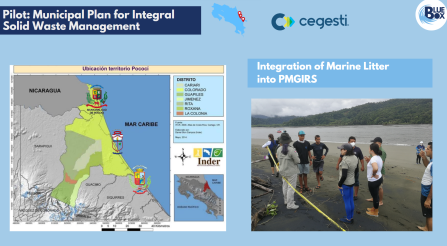
El proyecto piloto de Integración de los Desechos Marinos en los PMGIRS abarca una iniciativa global destinada a integrar de forma sistemática las medidas de gestión de los desechos marinos en los planes municipales de gestión de residuos sólidos existentes. Para empezar, se lleva a cabo una evaluación exhaustiva del estado actual de los desechos marinos, que incluye encuestas, análisis de datos y cartografía de los puntos conflictivos de desechos a lo largo de las zonas costeras. Una vez evaluada la situación, para hacer frente con eficacia a los desechos marinos, se pone en marcha un método específico. Para ello, se utilizan herramientas especiales contra los desechos marinos, incluidas en la BlueBox de PROMAR, como barreras flotantes, equipos de limpieza costera/guía de muestreo de playas y proyectos de limpieza dirigidos por la comunidad.
Al mismo tiempo, se adopta un enfoque polifacético para concienciar sobre los desechos marinos. Se trata de campañas educativas, talleres y actividades de participación comunitaria destinadas a informar a residentes, empresas y turistas sobre los efectos nocivos de los desechos marinos en los ecosistemas costeros y los medios de subsistencia. Colabora con escuelas locales, ONG y organismos gubernamentales para ampliar las actividades de divulgación y fomentar una cultura de protección del medio ambiente. Además, el proyecto piloto hace especial hincapié en la evaluación de la eficacia de estas acciones. Los indicadores clave de resultados, como el volumen de basura recogida, la reducción de los índices de acumulación de basura, los cambios en el comportamiento de los ciudadanos a la hora de deshacerse de la basura y las mejoras en la salud de los ecosistemas costeros, son objeto de un seguimiento minucioso y de un informe de evaluación.
